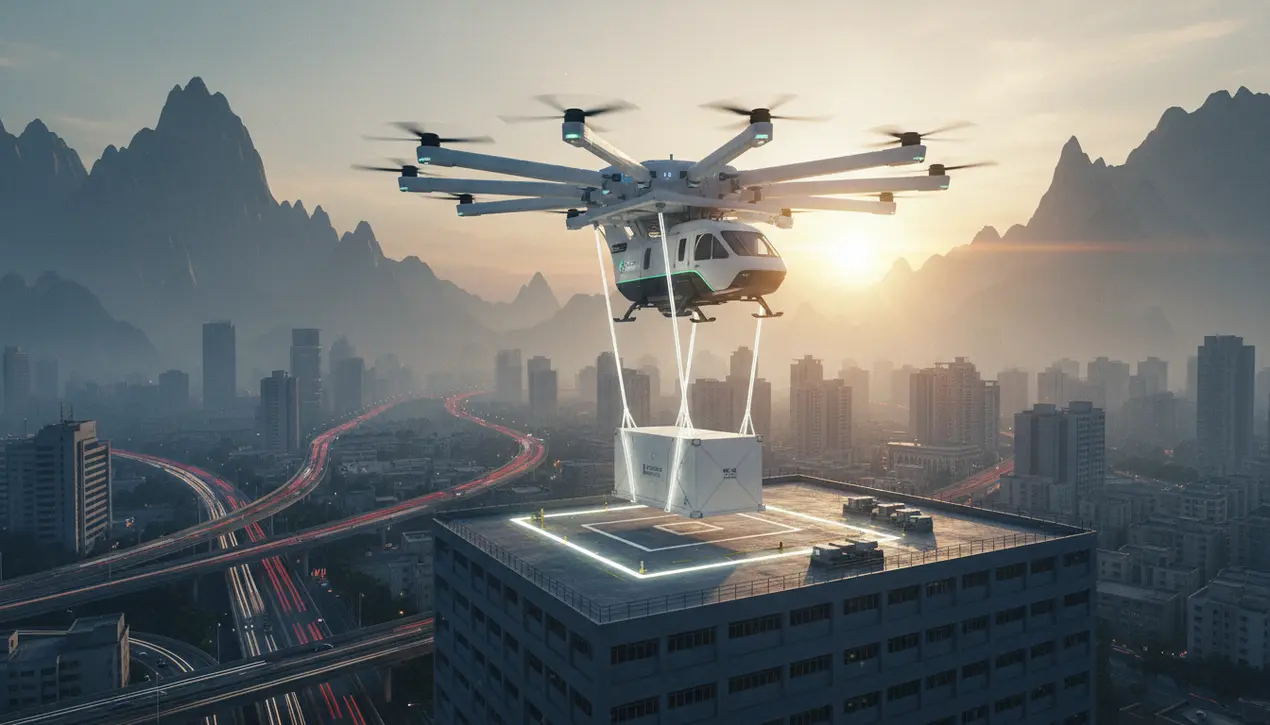
AIenterprise aiAI in Logistics
China's 2-tonne eVTOL completes cross-city cargo test.
TH
Thomas Green
13 hours ago7 min read2 comments
In a move that feels like it was pulled from the pages of a science fiction novel, a domestically developed 2-tonne eVTOL (electric Vertical Take-Off and Landing) aircraft has successfully completed a low-altitude cross-city cargo test flight in the misty highlands of southwest China’s Guizhou Province. This isn't just another incremental tech demo; it's a significant leap, akin to the early, tentative orbital flights that paved the way for the modern space age.The successful transport of a substantial payload across an urban landscape signals a critical maturation of the technology, moving it from the controlled environment of a test range into the complex, unpredictable tapestry of a real-world city. For years, the vision of silent, electric aircraft seamlessly ferrying goods above our heads has been championed by visionaries like Elon Musk, who often speaks of a multi-planetary future but whose principles of electrification and automation are fundamentally reshaping terrestrial transport.This Chinese test flight is a tangible step toward making that aerial logistics revolution a reality. The choice of a 2-tonne capacity is particularly telling, placing this vehicle in a strategic niche between small drone deliveries and traditional cargo planes, perfect for time-sensitive, high-value logistics like medical supplies, aerospace parts, or critical e-commerce deliveries.The implications are staggering. Imagine a future where highway congestion for freight trucks is drastically reduced, where supply chains become more resilient by adding a third, highly flexible dimension, and where emergency response in disaster zones is measured in minutes instead of hours.The low-altitude airspace over our cities, long a largely unused resource, is on the verge of becoming a new economic frontier, a 'sky road' that could unlock billions in economic value. However, the path forward is fraught with challenges that go beyond mere engineering.The creation of a comprehensive and failsafe Unmanned Aircraft System Traffic Management (UTM) is a colossal undertaking, a digital ballet that must prevent mid-air collisions with breathtaking precision. Public acceptance is another hurdle; the persistent whine of rotors and the perceived risk of a multi-tonne vehicle overhead will require careful community engagement and demonstrably superior safety records, likely involving extensive redundant systems and parachute recovery.Furthermore, this advancement places China in a fiercely competitive global race with companies like Joby Aviation in the US and Lilium in Germany, turning the development of eVTOL infrastructure into a new arena for geopolitical and technological influence. This test flight in Guizhou is more than a local news item; it is a clear signal that the future of urban mobility and logistics is being written now, not in a decade, and it's being written in the skies.
#featured
#eVTOL
#cargo flight
#autonomous aircraft
#logistics
#China
#Guizhou
#aviation technology
Stay Informed. Act Smarter.
Get weekly highlights, major headlines, and expert insights — then put your knowledge to work in our live prediction markets.
Related News
Comments
Loading comments...
© 2025 Outpoll Service LTD. All rights reserved.